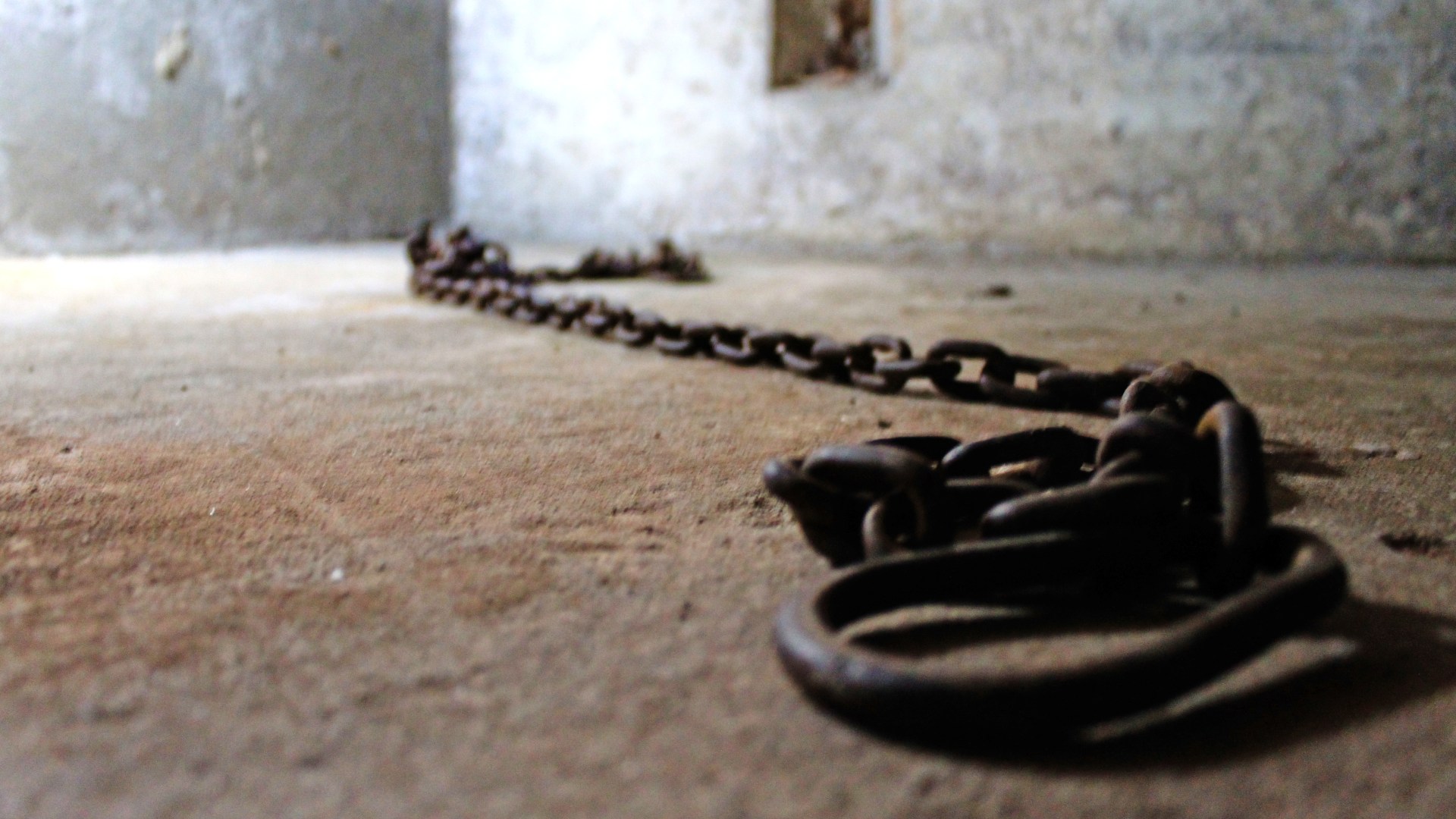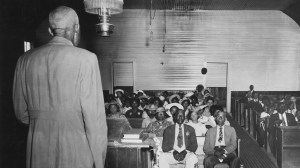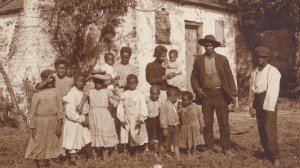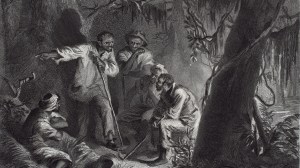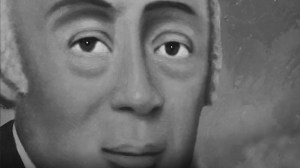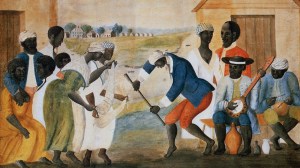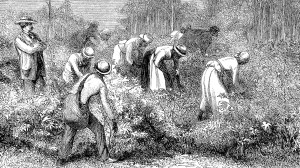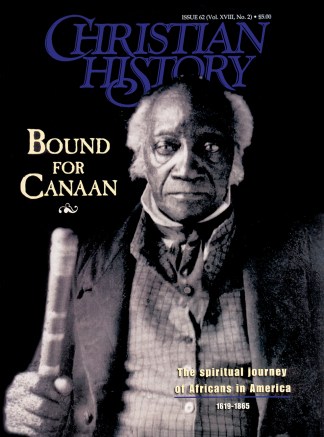In this series
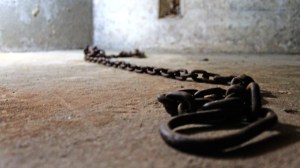
Will the Lord suffer this people to go on much longer, taking his holy name in vain? Will he not stop them, preachers and all? O Americans! Americans!! I call God—I call angels—I call men to witness that your destruction is at hand, and will be speedily consummated unless you repent."
The words of David Walker, the Bostonian son of a free mother and slave father, were as much a threat as they were a jeremiad. His 76-page pamphlet, Walker's Appeal to the Colored Citizens of the World (1829), marked the beginnings of a new abolitionism—and the beginnings of a rift between white and black antislavery movements.
Nervous reactions
"They want us for their slaves, and think nothing of murdering us," Walker wrote of southern slaveholders. "Therefore, if there is an attempt made by us, kill or be killed…and believe this, that it is no more harm for you to kill a man who is trying to kill you than it is for you to take a drink of water when thirsty; in fact the man who will stand still and let another man murder him is worse than an infidel."
Walker had never been a slave, but having been born in Wilmington, North Carolina, he knew its horrors. He had once seen a son forced to whip his mother to death. As a devout Baptist with a deep knowledge of the Bible, he believed the Old Testament God who violently freed the Israelites would free "the most degraded, wretched, and abject set of beings that ever lived."
The Boston clothier was also fluent in the rhetoric of the American Revolution, quoting Thomas Jefferson at length. For Walker, the Declaration of Independence, which affirmed the right of revolution, justified blacks' rising against their oppressors. Thus they could act confidently:
"Never make an attempt to gain our freedom or natural right, from under our cruel oppressors and murderers, until you see your way clear—when that hour arrives and you move, be not afraid or dismayed; for be you assured that Jesus Christ the king of heaven and of earth who is the God of justice and of armies, will surely go before you. And those enemies who have for hundreds of years stolen our rights and kept us ignorant of him and his divine worship, he will remove."
Southern whites were horrified by "the diabolical Boston Pamphlet." They passed laws forbidding blacks to read, banned the distribution of all antislavery literature, and offered rewards of up to $10,000 for Walker's arrest.
More importantly, however, Walker's Appeal also worried white abolitionists. "A more bold, daring, inflammatory publication, perhaps, never issued from the press of any country," wrote Quaker Benjamin Lundy, the most famous abolitionist of the day. "I can do no less than set the broadest seal of condemnation on it."
Abolitionist racism
Quakers and others had been arguing against slavery since colonial times, but their antislavery sentiments were patient. They believed "an abhorrence of slavery would gradually work its way" in the south, just as it had in the north, and that "it was the duty of [slavery opponents] patiently to wait the event."
But whites in the movement failed to see how pervasive racism was in their own ranks. In fact, one black newspaper editor suggested that many whites joined the antislavery cause because it allowed them to judge the South without confronting their own bigotry. Many in New England had never even seen an African American, and most societies forbade the admittance of blacks.
"Until abolitionists eradicate prejudice from their own hearts," opined one antislavery editor, "they can never receive the unwavering confidence of the people of color."
A few did receive such confidence, however, most notably William Lloyd Garrison. The publisher of the radical abolitionist newspaper The Liberator, Garrison was one of the few whites to support Walker's Appeal (though, as a pacifist, he denounced its call for violence, saying "a good end does not justify a wicked means"). One of the main founders of the American Anti-Slavery Society in 1833, he was the loudest voice calling for an immediate, not gradual, end to slavery.
As one resolution at the society's founding put it, "We shall spare no exertions nor means to bring the whole nation to speedy repentance."
Only three African Americans were at that founding meeting, but its message was one that resonated with black abolitionists around the country, for whom every day of waiting meant another day of butchery.
"The pleas of crying soft and sparing never answered the purpose of a reform, and never will," wrote David Ruggles, founder of both the first African-American weekly magazine and the first African-American bookstore—and one of the key figures in freeing the most famous black abolitionist, Frederick Douglass.
Split in the ranks
Born a slave in Maryland in February 1818, Douglass taught himself to read and eventually escaped at age 20. He ended up in New York, where Ruggles fed, clothed, and hid him. Eventually Douglass began working in New Bedford, Massachusetts, and began recruiting other blacks to the abolitionist cause. Within a few minutes of meeting Garrison, the white journalist asked him to become a paid lecturer for the Massachusetts Anti-Slavery Society.
His speeches earned him local fame but also the ire of northern mobs, especially when he attacked not only southern slavery but their northern racism. In Indiana, rocks and rotten eggs were hurled at him, and his hand was broken. He was often forced from trains, though he once held to his seat so tightly that his attackers had to remove the chair with his person.
Douglass's Narrative of the Life of Frederick Douglass earned him international fame, and he was soon the country's foremost black leader. Eventually, however, he and Garrison had a public falling out that mirrored similar splits in the abolitionist societies.
They disagreed about the legitimacy of American institutions like the Constitution, the government, and the churches (Garrison thought them all to be inherently proslavery), but their split had deeper roots. White abolitionists had been happy letting black abolitionists like Douglass publish narratives of their lives as slaves and give speeches describing the horrors of slavery. But when blacks attempted to take more leadership of the movement—as Douglass did when he attempted to start his own newspaper, The North Star—they were discouraged—even by radicals like Garrison.
The split widened as black abolitionists grew increasingly militant. Charles Lenox Remond, a former barber, encouraged slave uprisings and supported war between American and Britain, hoping the resulting disarray would allow slaves to seize freedom. Like Garrison, he believed the Constitution was evil, and he supported the dissolution of the Union if it meant the end of slavery.
Presbyterian minister Henry Highland Garnet, a former slave from Maryland, disagreed with Remond about the Constitution, but was even more militant than his fellow preacher—he even carried a sidearm. At the 1843 National Negro Convention in Buffalo, New York, he issued his famous "Address to the Slaves of the United States":
"Brethren, arise, arise! Strike for your lives and liberties. Now is the day and the hour. Let every slave throughout the land do this, and the days of slavery are numbered. You cannot be more oppressed that you have been—You cannot suffer greater cruelties than you have already. Rather die free-men than live to be slaves. Remember that you are four millions."
The speech shocked the abolitionist community. Even Douglass, who spoke after Garnet at the convention, denounced violent rebellion as a strategy. Within five months, however, even Douglass supported slave insurrections. After passage of the Fugitive Slave Law in 1850, blacks became even more militant. "The only way to make the fugitive slave law dead letter," Douglass said, "is to make a half a dozen or more dead kidnappers."
Unexpected Freedom
Black abolitionists saw, ironically, more fruit in the North than in the South (where they were largely limited to rescuing individual slaves). For white abolitionists, the end of slavery was the goal; for blacks, slavery was only the worst part of the nation's larger problem of racism and discrimination. Thus their agitation put pressure on northern legislatures, and some Jim Crow laws, segregation policies, and "Black Codes" were eliminated.
As white abolitionist Abby Kelley wrote, "We have good cause to be grateful to the slave for the benefit we have received to ourselves, in working for him. In striving to strike his chains off, we found, most surely, that we were manacled ourselves."
Ted Olsen is assistant editor of Christian History.

